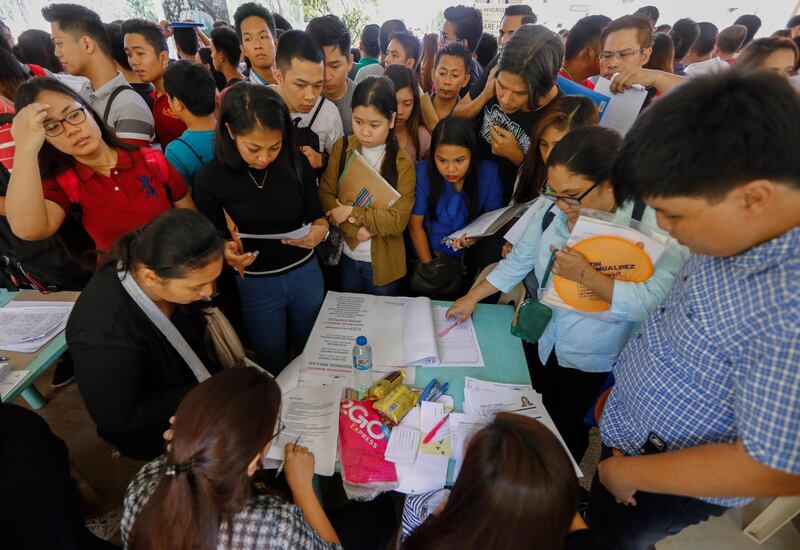The exploitation of workers being brought to the UAE will be tackled with renewed government oversight and close partnerships with partner countries, according to the labour minister.
Nasser Al Hamli, Minister of Human Resources and Emiratisation, said the country would work to "improve the protections offered to workers and prospective workers at risk of abuses beyond our borders".
His message came in the Worker Welfare Report released on Labour Day on Tuesday.
It outlined the measures taken in the past year to ensure employees' rights are clearly set out in law.
This includes thousands of inspections carried out at labour accommodation sites along with the law governing domestic workers, which was approved by the President, Sheikh Khalifa, in September 2017.
The recruitment industry in particular has been subject to close scrutiny in recent years after long-standing complaints that agents sending workers to the UAE over-charged, demanded payments for visas and mis-sold jobs.
Al Hamli said the ministry is working with the Philippines to develop a pilot programme to "strengthen government oversight into the recruitment process to enhance ethical recruitment" and with the Manila government and Sri Lanka on "pre-employment, pre-departure and post-arrival" procedures to stop abuse.
“During the past two years, the UAE has taken significant steps to strengthen procedures for the protection of workers. Among new regulations taken by the UAE, the introduction of the domestic labour law, the standardisation of employment contracts, measures to increase mobility and allow workers to change employers,” he said at a press conference on Tuesday.
Due to the country's transient nature, he said one million new expats take up jobs in the UAE every year.
“Our aim is to ensure that the UAE remains a beacon of aspiration for all, regardless of ethnicity, gender or religion. But we also want to inspire confidence that when things go wrong, residents will be treated fairly and with respect, and disputes are resolved quickly and cost effectively."
The report focused on the domestic worker rights law.
That set out out working conditions for maids, nannies, gardeners and others, guaranteeing at least 12 hours off duty a day, including eight consecutive hours, and 30 days of paid annual leave.
It sets out fines employers and recruiters up to Dh100,000 for failing to guarantee these rights or to those who discriminate, harass or force work on the people they employ. It covers 19 occupations.
Around 750,000 residents in the UAE work in the domestic service, according to the report issued by the ministry.
Manila has in recent years implemented what is effectively a ban on its citizens travelling to the UAE and some other Gulf states for such work.
Sri Lankan domestic workers were also discouraged from working in the Gulf, though the authorities in the UAE are working to find a way to ensure accredited agencies can operate and supply workers to the job market here.
Minister Al Hamli said the country is "proud to be a beacon of aspiration for people around the world, and to offer that prospect of a better life to everyone, regardless of education, gender, race or religion".






